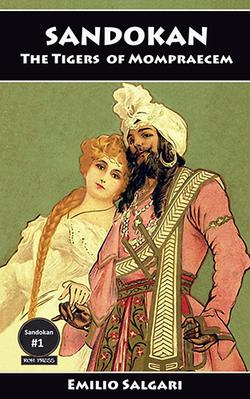It was weird, in a way, watching the sixth episode of Lovecraft Country, last night. One of the two best episodes in what I still feel like an uneven series, fraught with some “typical” HBO problems, Episode Six is set in Korea during the Korean War, and centers on a local girl in love with American movies, and serving as a nurse in an hospital. I won’t say more not to spoil you the fun.
What made the experience surreal was that I had spent part of the day,so to speak, in Korea – first, re-watching the classic Train to Busan for the next episode of the podcast I co-host with my friend Lucy, and secondly because I’ve been reading a very interesting book that puts everything in a different perspective.
I am currently reading, and I’m liking a lot, Sheridan Prasso’s The Asian Mystique – Dragon Ladies, Geisha Girls, & Our Fantasies of the Exotic Orient.

As someone that always felt a strong fascination for the East, and as a writer whose stories are often set in parts East – either historical or filtered through fantasy – this is a very strong read.
Our perception of the East has been subject to criticism since the publication of Edward Said’s Orientalism – and the current state of affairs (have you seen the news, lately?) requires us the re-examine the way we see Asia, as filtered by centuries of colonial relationships.
Andf truth to be told, as an Italian, the colonial bit for me is even stranger – because culturally we never had a strong presence in the East (hey, it’s the starting point of my The Ministry of Thunder!), and what I carry as a colonial mystique basically comes from my readings of British authors from the Victorian era, and later from American pulp fiction. And movies derived from those sources.

Other people’s biases, if you will – incidentally, the prejudices of people that had those same prejudices about me and mine.
It’s noteworthy that the only Italian author of Oriental adventures, Emilio Salgari, was strongly anti-colonialist, and usually cast the colonized as heroes, and the colonialists as bad guys (see Sandokan vs James Brooke).
Maybe this is the reason why it is easy (or less difficult, at least) for me to label some attitudes as fiction, and get over them.
Because, this is what the Prasso book tells us, a lot of what we imagine about Asia and Asian people IS fiction – fiction that’s been elevated to fact in some cases, fiction that is used as marketing by both East and West in many others.
And so last night, as I watched Lovecraft Country, instead of enjoying the monsters and the drama, I found myself thinking about how much of the fiction I was looking at was tinged by our orientalist fiction.
This is probably one of the points in which the series is proving uneven – clearly designed to reconfigure our narratives about issues of race and gender, it still falls for some cheap, old-fashioned clichés.
This is not bad in itself – popular fiction deals in clichés. But it’s a lot more complicated than it may seem.
